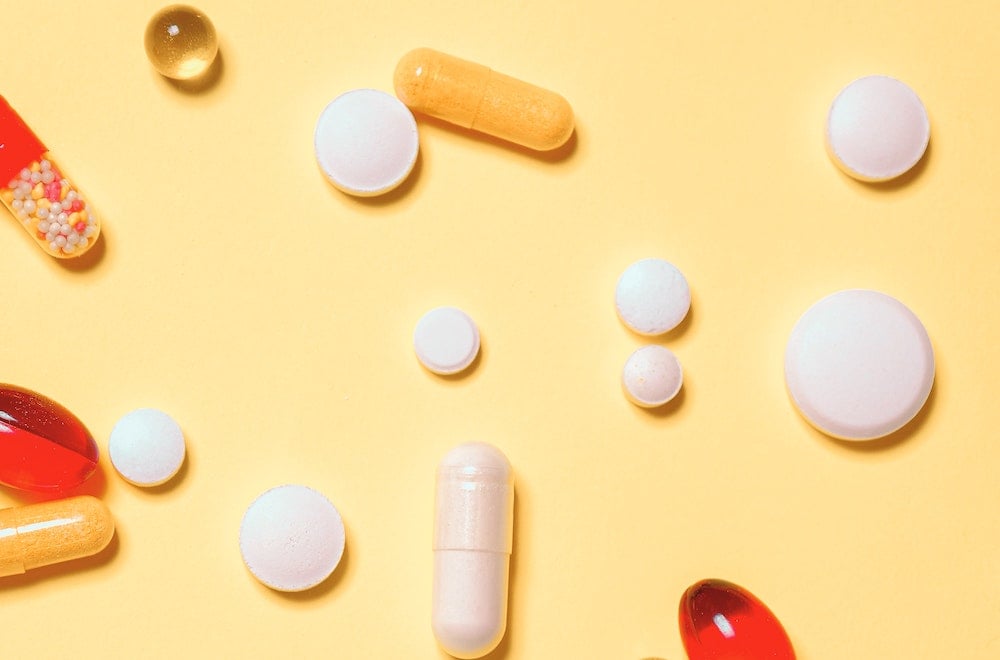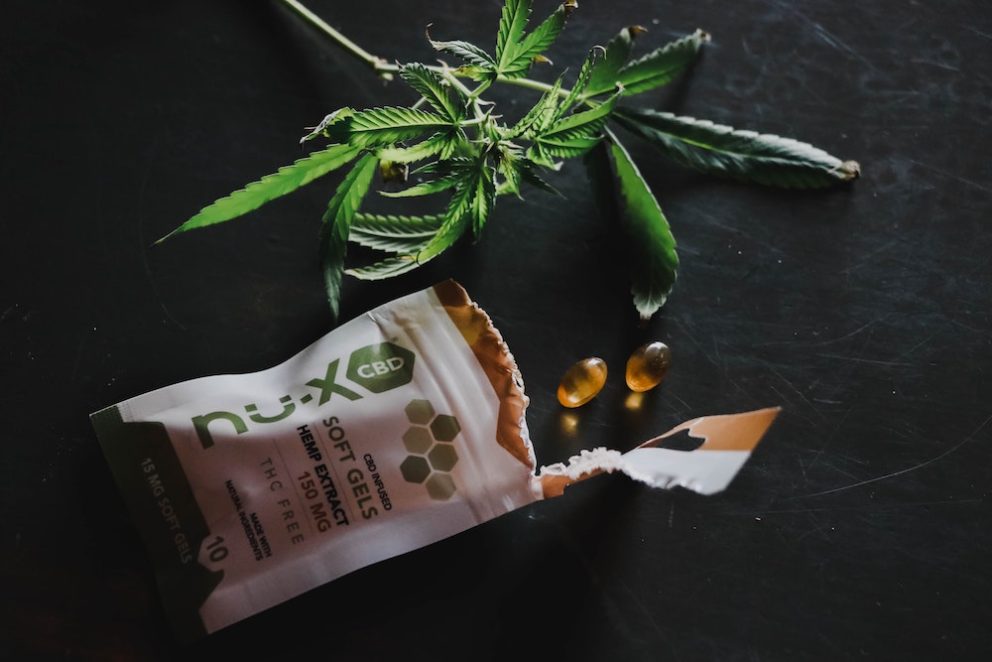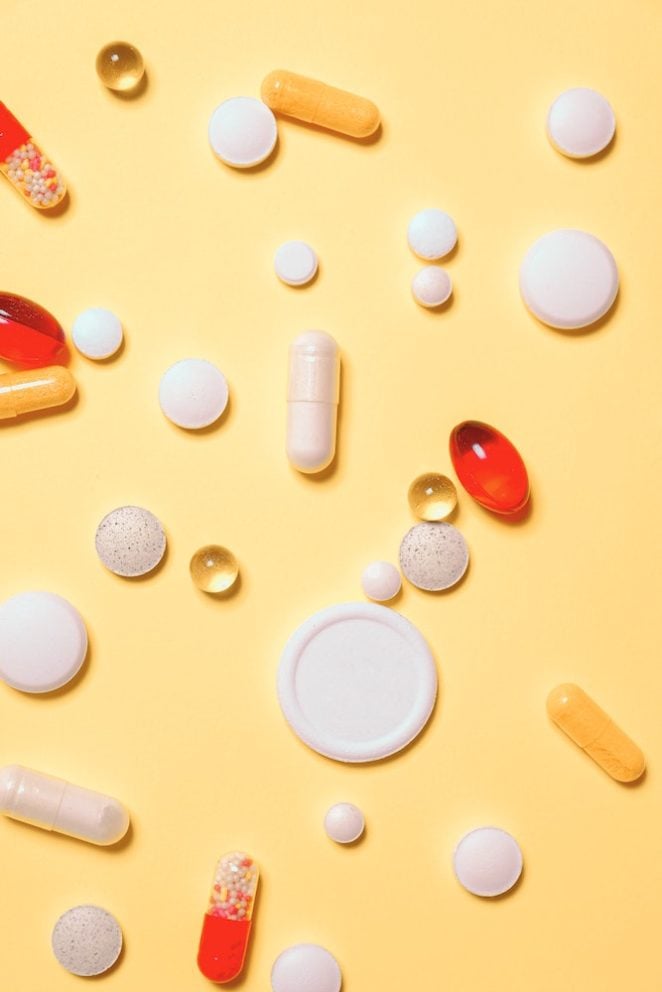Medicinal cannabis products have been growing in popularity since medicinal marijuana was legalized in California in 1996. This is turning the tide towards decriminalization across the country and the world. So it’s no surprise that multiple THC pills are now on the market.
THC pills provide patients with a simple way to take cannabis: flavorless, pre-dosed, and without much fanfare. Given how many meds in the world are delivered in pill form, why not cannabinoids?
Pills are a popular form of modern medicine, an easy delivery system with no worries about the taste of your meds. THC pills also offer a way to discreetly and quickly administer cannabis without having to rely on smoking or edibles.
Various types of THC pills exist. Are they good for you? Are there any risks? This article will break down the various types of THC pills on the market to give you a clear picture of your options for THC tablets.
What Are THC Pills?
THC pills are essentially any pill that allows you to consume THC or cannabis. It can be a bit vague as there is an ever-expanding list of options for THC in pill form. As more companies enter the marketplace, this number and your options will only increase.
Medicinal cannabis is getting approved in more countries leading to more testing, development, and pharmaceutical companies wanting their cut of the profits.
Cannabis is similar to vitamins and supplements in many ways. It’s only been approved medicinally for certain diagnoses, but many people swear by its health benefits. So it’s no surprise cannabis capsules are also on the market. Among all, THC pills for pain seem to be the most popular.
In the same way you find cinnamon in capsules and fish oil gels, you can find pills with ground-up decarboxylated cannabis or with THC oil concentrates. There are even quick-release tablets.
What Are The Kinds Of THC Pills On The Market?
Cannabis has various options on the market in tablet form. So how do THC pills look like? Here’s a preview of the different types of THC pills you may find stocked on dispensary or pharmacy shelves:
- THC-Oil Capsules, gelcaps, or soft gels are filled with a potent THC oil and can potentially have other cannabinoids depending on the oil blend.
- Flower Capsules are capsules that contain ground-up decarboxylated cannabis. They include cannabis that’s been heated, so the THC is activated. There’s also the potential to benefit from the other cannabinoids, terpenes, and other healthy compounds found in cannabis.
- THC Isolate Capsules can be made with pure THC. These can vary and can include crystalline or another pure form of THC.
- Blends: THC and other cannabinoids can be combined with other supplements like melatonin to offer an experience of pairing cannabis with other beneficial herbs or supplements.
- Sublingual: These are caplets that can be placed under the tongue for faster delivery. They dissolve quickly and allow the meds to be absorbed into the bloodstream through capillaries under the tongue.
- Synthetic FDA-Approved THC Meds: The FDA has approved medicines featuring a synthetic form of THC that will be featured below.
THC pills can vary from pills that exclusively contain THC to pills that are essentially edibles in pill form. Also, CBD pills are growing in popularity and can also be available in similar varieties.
How Do You Take THC Pills?
The answer is simple: you take them just like any other medicine or supplement: swallow them dry or take them with water. Nevertheless, you should take THC pills according to your doctor’s recommendations. If it is your first time, start with a low dose, increasing it progressively according to the physician’s suggestions.
How Long Do THC Pills Take to Kick in?
It depends, of course, but normally, a low-dose capsule between 5-10 milligrams should take between forty-five minutes to a couple of hours to produce effects. After the first pill, don’t take a second one for at least two hours. Just wait for the initial dosage to kick in. If you take the pill on an empty stomach, you can expect it to show effects faster, as food intake slows down the onset by about half an hour.
How Long Do THC Pills Last?
Each pill and medicine lasts for a certain period, so you will have to talk to your doctor about your pills’ lasting effects, depending on their dosage and formulation. However, you can expect THC pills to last in the body about as many edibles do (around five hours or more) and have longer-lasting effects than smoking or vaping.
[fl_builder_insert_layout id=13138]
The Benefits and Uses of THC Pills
Ideal for microdosing or for someone severely ill who may struggle with eating, THC pills allow patients, and recreational users, to easily dose cannabis while avoiding the health hazards of smoking or consuming the large amounts of sugar and fat often found in edibles. Since they are zero-calories, THC pills may be a better option for those with dietary restrictions or watching their diets and body weights.
There are plenty of gummies and small-dose edibles on the market. Still, THC pills can help you dodge excess calories, avoid the taste of cannabis, save your teeth from cavities, and dose it like any other medication or supplement.
Discreet and highly portable, THC pills make a good option for patients who don’t enjoy vaping, smoking, or using medical cannabis in oil or edible form. Moreover, since they are just like the more traditional pills, THC tablets come in various formulations, dosages, and combinations that suit specific patient needs.
What Are the Risks of THC Pills?
Risks and indications can vary based on the THC percentage and the form of medication. Therefore, it’s vital when selecting THC pills to investigate how they’re made and confirm the amount of THC and other ingredients.
The further away you get from natural cannabis, the more you risk experiencing interactions with the chemicals used to make the product and with other medication you might take.
It’s also important to remember that with THC pills, there is the potential for you to have a stronger effect if it’s paired with a fatty meal. However, there’s also the potential to not fully be aware of how you’ll be affected until you try your first dose.
What Is Marinol/Dronabinol?
When you think of THC pills, you may not realize there are drugs on the market, maybe in your pharmacy, made with synthetic forms of THC. Dronabinol is a synthetic version of THC with brand names including Marinol, Syndros, Reduvo, or Adversa and is officially approved by the FDA.
It can be prescribed to treat nausea associated with chemotherapy and anorexia and hunger issues in people diagnosed with AIDS. The bright side to FDA approval is that it can potentially, for some patients, be covered by insurance.
What Are The Side Effects Of Marinol?
Potential side effects include drowsiness, dizziness, paranoia, and sleepiness. That’s not too shocking for cannabis users.
It can, however, also cause nausea, vomiting, and stomach pain which is strange given that it is meant to treat. In addition, in some severe cases, it can cause confusion, slurred speech, and even trouble walking.
It can even cause hallucination and forgetfulness or memory loss.
Photo by Anna Shvets from Pexels
What Are The Risks Of Marinol?
The risks of Marinol/Dronabinol are that it can be habit forming. It’s advised not to drink while taking this pill as it can increase the effects. Severe risks of Marinol include mental health problems like depression and schizophrenia episodes, heart issues, and even seizures.
Granted, this can be in patients with a history of these issues, but that’s severe enough to consider how fresh cannabis might offer cannabinoids and terpenes to temper some of the reactions to synthesized THC.
What is Cesamet/Nabilone?
Cesamet or nabilone is another synthetic version of THC. It’s believed this medication attaches to the cannabinoid receptors in your brain to prevent nausea and vomiting. It’s often prescribed as a last resort for patients who have not had success with other antiemetics, a.k.a. drugs to treat nausea and vomiting.
What Are The Side Effects Of Cesamet?
Potential side effects of Cesamet (in more than 12% of patients) include :
- Ataxia
- Blurred vision
- Concentration difficulties
- Euphoria
- Drowsiness
- Dry mouth
- Sleep disturbance
- Vertigo
- Visual disturbance
Less common side effects but potentially harmful side effects include:
- Depersonalization
- Disorientation
- Dysphoria
- Headache
- Hypotension
- Nausea
What Are The Risks Of Cesamet?
Some caution should be taken with Cesamet as it can cause severe liver impairment and may cause tachycardia and orthostatic hypotension.
Choose Whichever Option You Like with a MMJ Card
Medicinal cannabis can offer a natural alternative to more traditional medications, but a THC pill can make for a more seamless transition from traditional medicine to medicinal cannabis.
Cannabinoids can help with pain, inflammation, and anxiety. In addition, THC pills can allow you to test the waters of medicinal or even recreational cannabis.
There are also FDA-approved THC pills that your insurance may even cover in extreme cases.
However, the appeal of cannabis is that it’s all-natural.
For this reason, you may want to consider a product with a wider variety of cannabinoids and terpenes rather than a pharmaceutical company’s latest development in the form of THC pills. The appeal is understandable: they streamline the process and provide quality control. Nevertheless, cannabis has been used for hundreds of years, while some of these medicines are in the early stages of development. Ultimately, you should decide what form of THC is best for your symptoms, lifestyle, and overall health.
If you’re interested in medical marijuana as an alternative to THC pills, apply for a medical marijuana card online today! Your local medical marijuana dispensary will have a variety of different THC options available to you.
This article is reviewed by Dr. Anand Dugar, an anesthesiologist and pain medicine physician. He is also the founder of Green Health Docs. Graduating from medical school in 2004 and residency in 2008, Dr. Dugar has been a licensed physician for almost 20 years and has been leading the push for medical cannabis nationwide.



 This article is reviewed by Dr.
This article is reviewed by Dr.